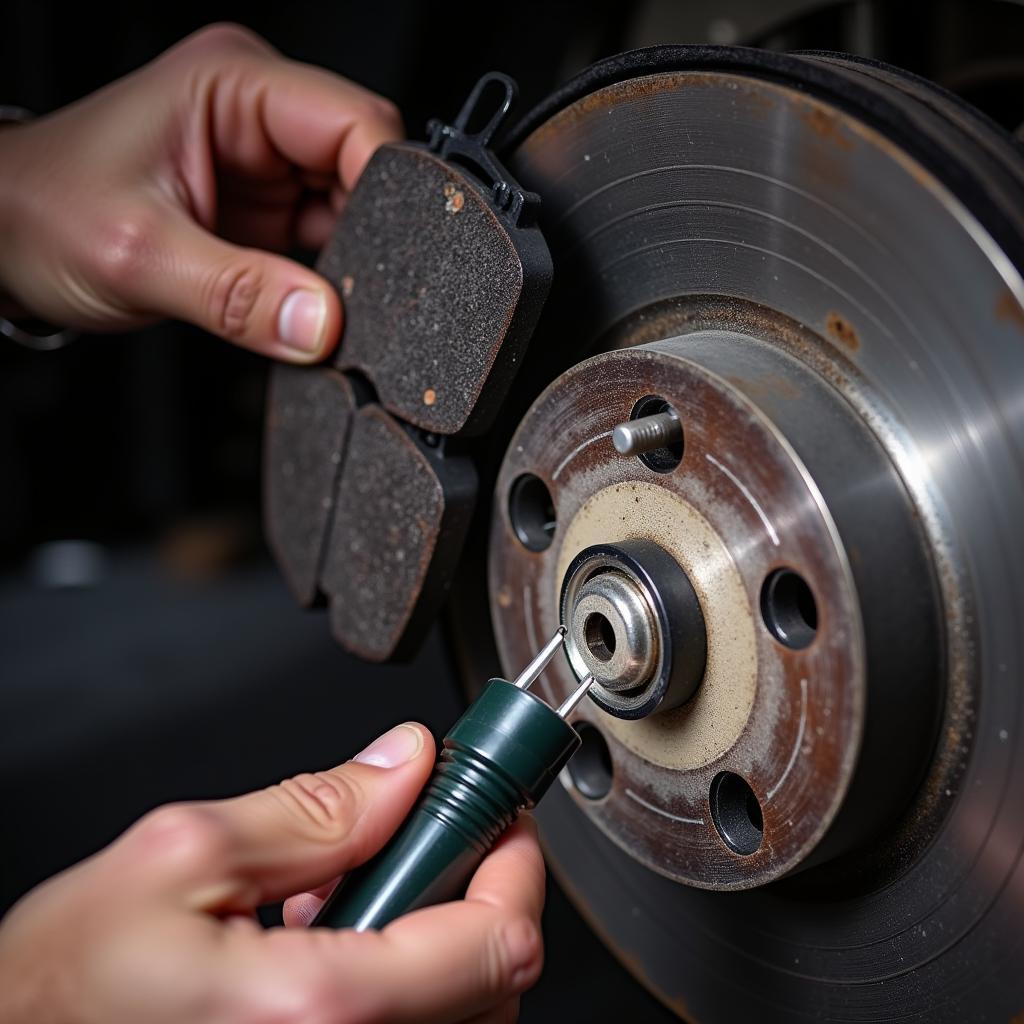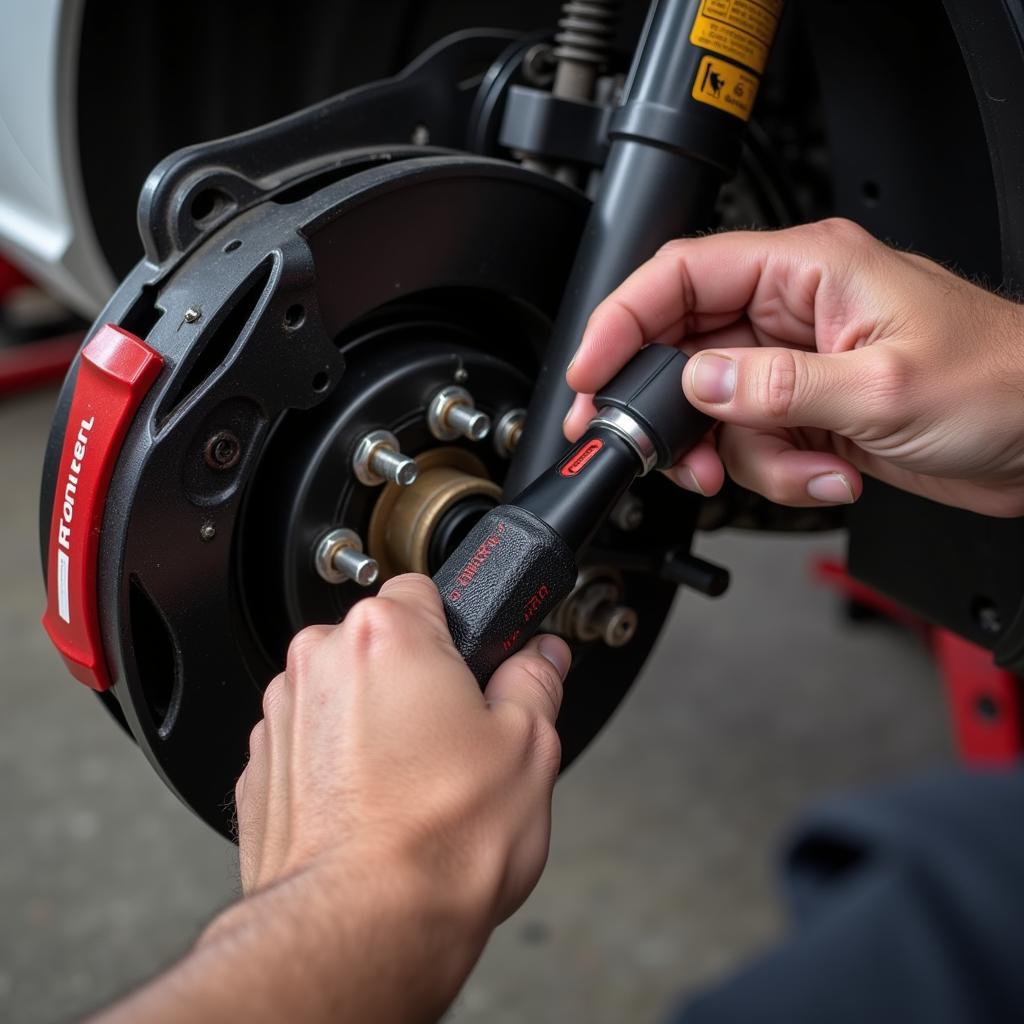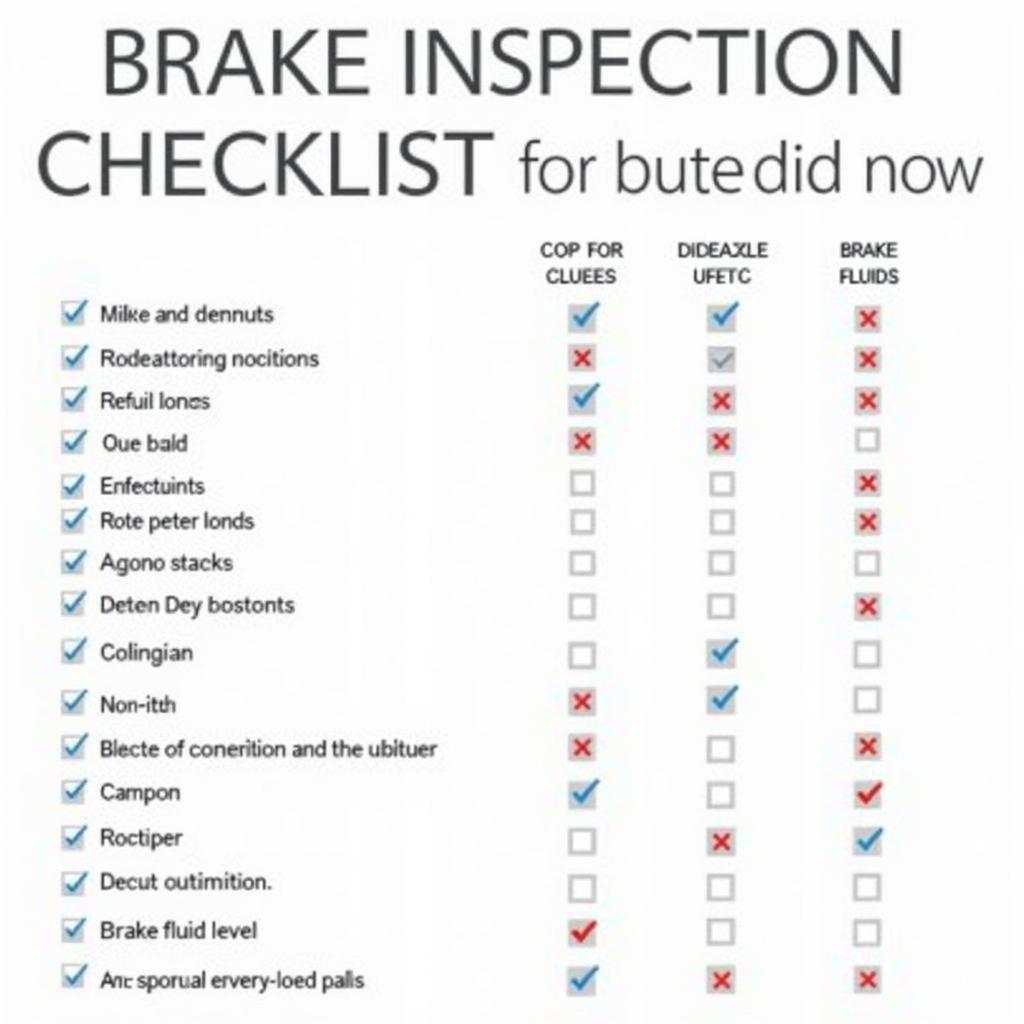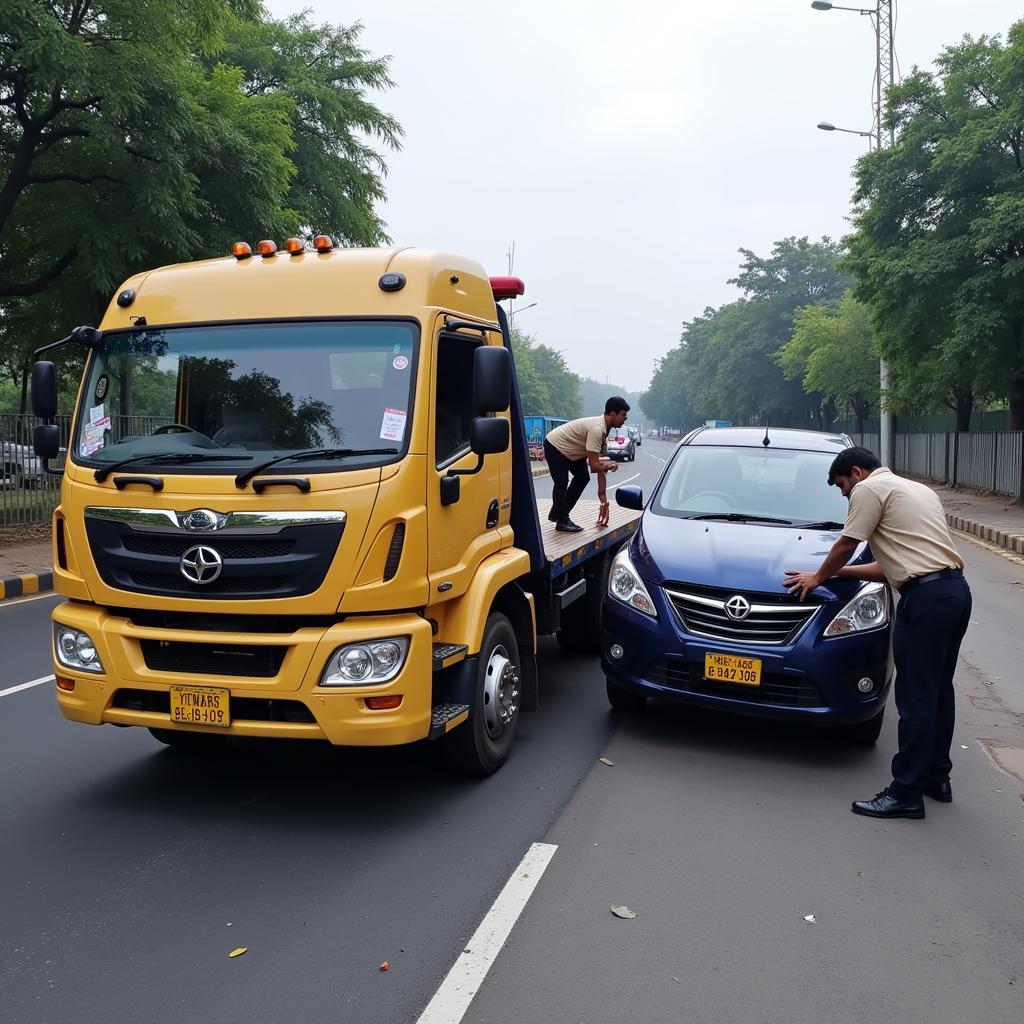Car Brakes Squeaking and Clunking After a Service
If you’re hearing Car Brakes Squeaking And Clunking After A Service, you’re likely experiencing a common, yet frustrating, issue. While a little noise can be expected after brake work, excessive squeaking and clunking often indicate a problem that needs further attention. This article dives into the potential causes, solutions, and how to prevent this issue in the future.
Why Are My Car Brakes Squeaking and Clunking After a Service?
Several factors can contribute to squeaking and clunking car brakes after a service. Understanding the underlying causes can help you address the problem effectively.
Common Causes of Squeaking Brakes
- New brake pads: Newly installed brake pads often squeak until they’re properly bedded in. This process involves applying moderate brake pressure repeatedly to create an even contact surface between the pads and rotors.
- Dust and debris: Dust, dirt, or road debris can get trapped between the brake pads and rotors, causing a squeaking noise.
- Worn brake pads: While less likely immediately after a service, if your old pads weren’t replaced, they might be worn down and causing the squeak. Worn pads will have a metal indicator that makes contact with the rotor, producing a high-pitched squeal.
- Glazed rotors: Rotors can become glazed, developing a smooth, shiny surface that reduces friction and causes squeaking.
- Moisture: Moisture or humidity can cause a temporary squeak that usually disappears after the brakes warm up.
Common Causes of Clunking Brakes
- Loose caliper bolts: If the caliper bolts weren’t tightened properly during the service, they can become loose, causing a clunking noise when braking.
- Worn caliper hardware: Damaged or worn caliper slides or bushings can create play in the caliper, resulting in a clunking sound.
- Loose or worn suspension components: While not directly related to the brakes, worn suspension parts can exacerbate clunking noises when braking.
- Anti-rattle clips: Missing or improperly installed anti-rattle clips can allow the brake pads to move within the caliper, leading to a clunking noise.
 Inspecting Brake Pads and Rotors
Inspecting Brake Pads and Rotors
How to Fix Squeaking and Clunking Brakes
Addressing squeaking and clunking brakes requires identifying the specific cause and applying the appropriate fix.
Solutions for Squeaking Brakes
- Bed in the new brake pads: If your brakes were recently serviced with new pads, bedding them in properly can often resolve the squeaking. This involves a series of controlled stops from moderate speeds, allowing the pads and rotors to mate evenly.
- Clean the brakes: Cleaning the brakes with a brake cleaner can remove dust, debris, and other contaminants that might be causing the squeak.
- Replace worn brake pads: If your brake pads are worn down, they need to be replaced.
- Resurface or replace rotors: If the rotors are glazed or excessively worn, they can be resurfaced or replaced.
- Apply brake lubricant: Applying a specialized brake lubricant to the appropriate areas can reduce friction and eliminate squeaking.
Solutions for Clunking Brakes
- Tighten caliper bolts: Check and tighten the caliper bolts to the correct torque specification.
- Replace worn caliper hardware: Replace any damaged or worn caliper slides, bushings, or other hardware.
- Inspect and repair suspension components: Have a mechanic inspect your suspension for any worn or loose parts that might be contributing to the clunking noise.
- Install or replace anti-rattle clips: Make sure the anti-rattle clips are correctly installed and replace them if necessary.
 Tightening Caliper Bolts
Tightening Caliper Bolts
Preventing Future Brake Issues
Preventing brake issues is often more cost-effective than dealing with repairs. Here are some preventative measures:
- Regular brake inspections: Schedule routine brake inspections as part of your vehicle’s maintenance schedule.
- Quality brake parts: Use high-quality brake pads and rotors from reputable manufacturers.
- Proper brake service: Ensure your brakes are serviced by qualified technicians who follow proper procedures.
- Avoid harsh braking: Avoid aggressive braking habits that can prematurely wear down brake components.
 Brake Inspection Checklist
Brake Inspection Checklist
Conclusion
Car brakes squeaking and clunking after a service can be a nuisance, but addressing the issue promptly is crucial for your safety. By understanding the potential causes and solutions, you can take the necessary steps to fix the problem and prevent future occurrences. If the issue persists, consult a qualified mechanic for a thorough inspection and diagnosis.
FAQs
- Is it normal for brakes to squeak a little after a service? Some initial squeaking can be normal with new brake pads, but excessive or persistent squeaking indicates a problem.
- How long does it take for new brake pads to bed in? It typically takes a few hundred miles of driving for new brake pads to fully bed in.
- Can I fix squeaking or clunking brakes myself? Some fixes, like cleaning the brakes or checking caliper bolts, can be done DIY. However, more complex repairs require professional expertise.
- How often should I have my brakes inspected? It’s recommended to have your brakes inspected at least once a year or as part of your vehicle’s recommended maintenance schedule.
- What are the signs of worn brake pads? Signs of worn brake pads include squeaking, grinding, a vibrating brake pedal, and reduced braking performance.
- How much does it cost to fix squeaking or clunking brakes? The cost varies depending on the cause and the required repairs.
- Can worn suspension components cause brake noise? Yes, worn suspension parts can contribute to clunking noises when braking.
Call to Action
If you need assistance with your car brakes, please contact us via WhatsApp: +1(641)206-8880, Email: [email protected] or visit our workshop at 456 Oak Avenue, Miami, FL 33101, USA. We have a 24/7 customer support team ready to help.

